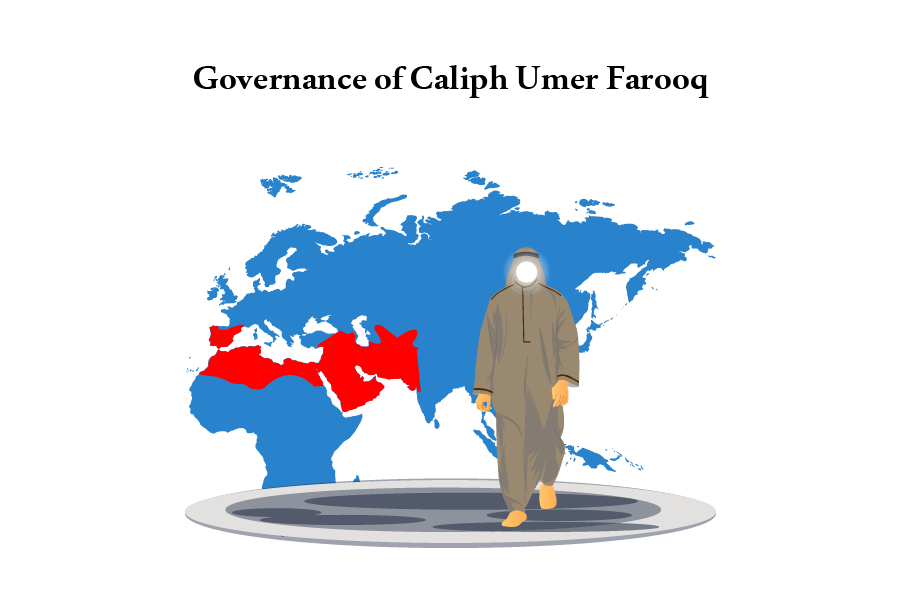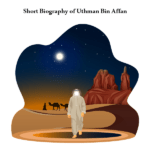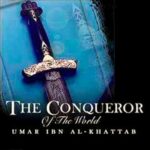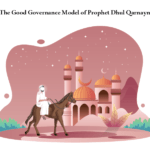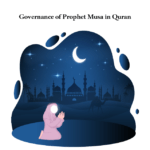The governance of Umer Farooq is the backbone of Muslim management.
The governance of Hazrat Umar R.A was a time of great success in history. Under his government, Muslims spread Islam rapidly. Umar bin Khattab was one of history’s most influential Muslim caliphs (successors). He was a senior companion of our beloved Prophet Muhammad (SAW). His reversion to Islam was one of the defining moments of the pre-migration era in Makkah.
He succeeded Abu Bakr (632–634) as the second caliph of the Rashidun Caliphate (caliphate of four rightly guided caliphs) on 23 August 634 after the death of Abu Bakar. Interestingly, Umer bin Khattab was nominated by Abu Bakar himself as his successor in government.
And he also sought the consent of senior companions of Prophet Muhammad (SAW). He was an expert Islamic lawyer known for his pious and just nature. It earned him the Al-Farooq (“the one who distinguishes between right and wrong”). The era of his governance is considered the peak of Muslim rule worldwide.
Military progress under the governance of Umer Farooq
Under the command of Umer, the caliphate expanded at an exceptional rate. The expansion of Muslim rule was easy to analyze because Umer Farooq governed the Sasanian Empire and more than two-thirds of the Byzantine Empire (current Iran and Iraq).
His attacks against the Sasanian Empire resulted in the conquest of Persia in fewer than two years (642–644). It is relevant to mention that the Sasanian Empire and Byzantine Empire were two global superpowers. Both empires were much older and more robust than the advancing Muslim empire, with sizeable military muscle.
However, Muslim armies under the leadership of great warriors like Khalid bin Waleed and Saad bin Abi Waqas conquered empires more enormous in size and age than the Islamic empire.
The following image exemplifies the difference in size. Along with these two vast conquests, some other military journeys earned Umar bin Khattab a reputation as an excellent political and military strategist.
Jerusalem got under Muslim rule for the first time after these conquests. However, According to Jewish tradition, Umar set aside the Christian ban on Jews and allowed them into Jerusalem to worship.
The story of Umer’s entry to Jerusalem as a conqueror is yet another example of the humbleness and greatness of governance of Caliph Umer.
The governance of Umer Farooq
The governance of Umer was more or less respective. The sovereign political authority was the caliph. The governance model is based on the division of administrative powers for ease and efficiency of governance.
And a clear ranking of administration followed. Umar’s empire was divided into provinces and some sovereign territories like some regions Azerbaijan and Armenia, which had accepted the realm of the caliphate.
The provincial governors or Wali administered the areas. The selection was made personally by Umar, who was very precise. Provinces are divided into districts. There were about 100 districts in the empire.
Each community or central city was under the charge of a junior governor or Amil, usually appointed by him. But occasionally, they were also appointed by the provincial governor. Other officers at the regional level were:
- The Chief Secretary called Katib.
- The Military Secretary called Katib-and-Diwan.
- The Revenue Collector is named Sahib-ul-Kharaj.
- The Police chief, Sahib-ul-Ahdath.
- The Treasury Officer, Sahib-Bait-ul-Mal.
- The Chief Judge, Qadi.
Novel initiatives during the governance of Umer Farooq
The governance of Umar was the first to introduce the public ministry system. The records of officials and soldiers are kept. He also held a record system with messages he sent to Governors and heads of state. He established the policing department.
Apart from the dedicated military force, he was the first to appoint police forces to maintain civil order. He was the first to discipline the people when they became disordered.
He also started different social security projects for the welfare of the masses. For instance, he issued scholarships for elderly citizens and mothers who feed their babies. Scholarship for feeding mothers is given in European states too, and the law is called “Umer Law.”
The government built rest areas on national highways to strengthen public tourism inns. They laid the tradition of marking distance on the path for ease of travellers in calculating their distance from their destiny.
In short, we can say that he was an innovator of bureaucracy, and the governance of Umer Farooq is an exemplary model. Lets us tell the world about our great leaders by sharing this post on every platform. Let us own our heritage.



